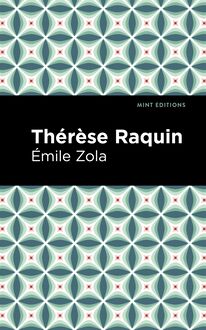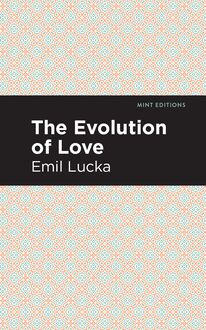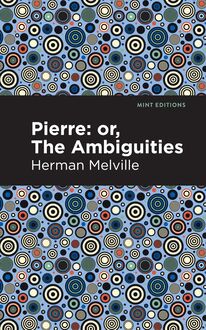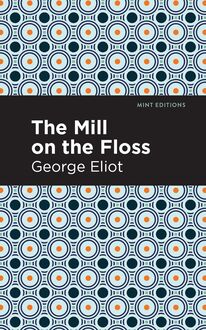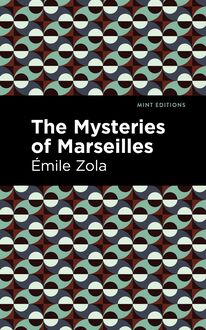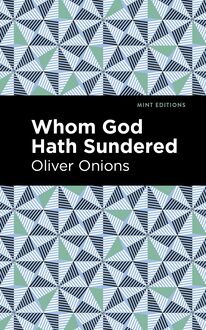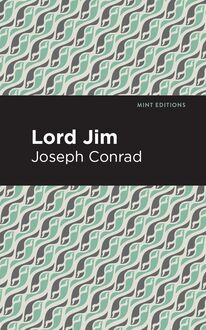-
 Univers
Univers
-
 Ebooks
Ebooks
-
 Livres audio
Livres audio
-
 Presse
Presse
-
 Podcasts
Podcasts
-
 BD
BD
-
 Documents
Documents
-
- Cours
- Révisions
- Ressources pédagogiques
- Sciences de l’éducation
- Manuels scolaires
- Langues
- Travaux de classe
- Annales de BEP
- Etudes supérieures
- Maternelle et primaire
- Fiches de lecture
- Orientation scolaire
- Méthodologie
- Corrigés de devoir
- Annales d’examens et concours
- Annales du bac
- Annales du brevet
- Rapports de stage
La lecture à portée de main
Vous pourrez modifier la taille du texte de cet ouvrage
Découvre YouScribe en t'inscrivant gratuitement
Je m'inscrisDécouvre YouScribe en t'inscrivant gratuitement
Je m'inscrisEn savoir plus
Vous pourrez modifier la taille du texte de cet ouvrage
En savoir plus

Description
Pierre: or, The Ambiguities (1852) is a novel by American writer Herman Melville. Published the year after Moby-Dick—a critical and commercial failure—Pierre: or, The Ambiguities is a psychological novel in the tradition of Gothic fiction. Melville struggled to find a publisher who would pay him in advance for the book, and its appearance prompted widespread ridicule and condemnation in the press, with some critics claiming that Melville himself had gone mad. The novel plunged Melville deeper into financial ruin, and all but ensured that his next novels, Israel Potter and The Confidence-Man, would be his last.
Pierre Glendinning Jr. is a nineteen-year-old heir who lives with his widowed mother at their family manor in upstate New York. Engaged to the beautiful and respectable Lucy Tartan, Pierre stands to inherit—with his mother’s approval—a life of comfort and wealth. When he meets a young woman named Isabel Banford, his father’s illegitimate daughter, Pierre devises a plan he believes will solve everyone’s problems: he will marry Isabel, who will inherit her share of their father’s wealth, thereby preserving his father’s honor and sparing his mother the embarrassment of her husband’s infidelity. Pierre marries Isabel in secret, and when he tells his mother is thrown out of the house and cut off from his family for good. He moves with Isabel to New York City, where he hopes to make a life for himself as a writer, but the sins of the past refuse to let him rest as he wrestles with his choices and discovers the true nature of his seemingly good intentions.
With a beautifully designed cover and professionally typeset manuscript, this edition of Herman Melville’s Pierre: or, The Ambiguities is a classic of American literature reimagined for modern readers.
Sujets
Informations
| Publié par | Mint Editions |
| Date de parution | 12 janvier 2021 |
| Nombre de lectures | 0 |
| EAN13 | 9781513275055 |
| Langue | English |
| Poids de l'ouvrage | 2 Mo |
Informations légales : prix de location à la page 0,0500€. Cette information est donnée uniquement à titre indicatif conformément à la législation en vigueur.
Extrait
Pierre: or, The Ambiguities
Herman Melville
Pierre: or, The Ambiguities was first published in 1852.
This edition published by Mint Editions 2021.
ISBN 9781513270050 | E-ISBN 9781513275055
Published by Mint Editions®
minteditionbooks.com
Publishing Director: Jennifer Newens
Design & Production: Rachel Lopez Metzger
Typesetting: Westchester Publishing Services
C ONTENTS B OOK I. P IERRE J UST E MERGING FROM H IS T EENS B OOK II. L OVE , D ELIGHT , AND A LARM B OOK III. T HE P RESENTIMENT AND THE V ERIFICATION B OOK IV. R ETROSPECTIVE B OOK V. M ISGIVINGS AND P REPARATIONS B OOK VI. I SABEL , AND THE F IRST P ART OF THE S TORY OF I SABEL B OOK VII. I NTERMEDIATE BETWEEN P IERRE ’ S T WO I NTERVIEWS WITH I SABEL AT THE F ARM -H OUSE B OOK VIII. T HE S ECOND I NTERVIEW AT THE F ARM -H OUSE , AND THE S ECOND P ART OF THE S TORY OF I SABEL . T HEIR I MMEDIATE I MPULSIVE E FFECT UPON P IERRE B OOK IX. M ORE L IGHT , AND THE G LOOM OF T HAT L IGHT . M ORE G LOOM , AND THE L IGHT OF T HAT G LOOM B OOK X. T HE U NPRECEDENTED F INAL R ESOLUTION OF P IERRE B OOK XI. H E C ROSSES THE R UBICON B OOK XII. I SABEL , M RS . G LENDINNING , THE P ORTRAIT , AND L UCY B OOK XIII. T HEY D EPART THE M EADOWS B OOK XIV. T HE J OURNEY AND THE P AMPHLET B OOK XV. T HE C OUSINS B OOK XVI. F IRST N IGHT OF T HEIR A RRIVAL IN THE C ITY B OOK XVII. Y OUNG A MERICA IN L ITERATURE B OOK XVIII. P IERRE , AS A J UVENILE A UTHOR , R ECONSIDERED B OOK XIX. T HE C HURCH OF THE A POSTLES B OOK XX. C HARLIE M ILLTHORPE B OOK XXI. P IERRE I MMATURELY A TTEMPTS A M ATURE W ORK . T IDINGS FROM THE M EADOWS . P LINLIMMON B OOK XXII. T HE F LOWER -C URTAIN L IFTED FROM B EFORE A T ROPICAL A UTHOR , WITH S OME R EMARKS ON THE T RANSCENDENTAL F LESH -B RUSH P HILOSOPHY B OOK XXIII. A L ETTER FOR P IERRE . I SABEL . A RRIVAL OF L UCY ’ S E ASEL AND T RUNKS AT THE A POSTLES ’ B OOK XXIV. L UCY AT THE A POSTLES B OOK XXV. L UCY , I SABEL , AND P IERRE . P IERRE AT H IS B OOK . E NCELADUS B OOK XXVI. A W ALK ; A F OREIGN P ORTRAIT ; A S AIL ; A ND THE E ND
Book I
P IERRE J UST E MERGING FROM H IS T EENS
I
T HERE ARE SOME STRANGE SUMMER mornings in the country, when he who is but a sojourner from the city shall early walk forth into the fields, and be wonder-smitten with the trance-like aspect of the green and golden world. Not a flower stirs; the trees forget to wave; the grass itself seems to have ceased to grow; and all Nature, as if suddenly become conscious of her own profound mystery, and feeling no refuge from it but silence, sinks into this wonderful and indescribable repose.
Such was the morning in June, when, issuing from the embowered and high-gabled old home of his fathers, Pierre, dewily refreshed and spiritualized by sleep, gayly entered the long, wide, elm-arched street of the village, and half unconsciously bent his steps toward a cottage, which peeped into view near the end of the vista.
The verdant trance lay far and wide; and through it nothing came but the brindled kine, dreamily wandering to their pastures, followed, not driven, by ruddy-cheeked, white-footed boys.
As touched and bewitched by the loveliness of this silence, Pierre neared the cottage, and lifted his eyes, he swiftly paused, fixing his glance upon one upper, open casement there. Why now this impassioned, youthful pause? Why this enkindled cheek and eye? Upon the sill of the casement, a snow-white glossy pillow reposes, and a trailing shrub has softly rested a rich, crimson flower against it.
Well mayst thou seek that pillow, thou odoriferous flower, thought Pierre; not an hour ago, her own cheek must have rested there. “Lucy!”
“Pierre!”
As heart rings to heart those voices rang, and for a moment, in the bright hush of the morning, the two stood silently but ardently eying each other, beholding mutual reflections of a boundless admiration and love.
“Nothing but Pierre,” laughed the youth, at last; “thou hast forgotten to bid me good-morning.”
“That would be little. Good-mornings, good-evenings, good days, weeks, months, and years to thee, Pierre;—bright Pierre!—Pierre!”
Truly, thought the youth, with a still gaze of inexpressible fondness; truly the skies do ope, and this invoking angel looks down.—“I would return thee thy manifold good-mornings, Lucy, did not that presume thou had’st lived through a night; and by Heaven, thou belong’st to the regions of an infinite day!”
“Fie, now, Pierre; why should ye youths always swear when ye love!”
“Because in us love is profane, since it mortally reaches toward the heaven in ye!”
“There thou fly’st again, Pierre; thou art always circumventing me so. Tell me, why should ye youths ever show so sweet an expertness in turning all trifles of ours into trophies of yours?”
“I know not how that is, but ever was it our fashion to do.” And shaking the casement shrub, he dislodged the flower, and conspicuously fastened it in his bosom.—“I must away now, Lucy; see! under these colors I march.”
“Bravissimo! oh, my only recruit!”
II
P IERRE WAS THE ONLY SON of an affluent, and haughty widow; a lady who externally furnished a singular example of the preservative and beautifying influences of unfluctuating rank, health, and wealth, when joined to a fine mind of medium culture, uncankered by any inconsolable grief, and never worn by sordid cares. In mature age, the rose still miraculously clung to her cheek; litheness had not yet completely uncoiled itself from her waist, nor smoothness unscrolled itself from her brow, nor diamondness departed from her eyes. So that when lit up and bediademed by ball-room lights, Mrs. Glendinning still eclipsed far younger charms, and had she chosen to encourage them, would have been followed by a train of infatuated suitors, little less young than her own son Pierre.
But a reverential and devoted son seemed lover enough for this widow Bloom; and besides all this, Pierre when namelessly annoyed, and sometimes even jealously transported by the too ardent admiration of the handsome youths, who now and then, caught in unintended snares, seemed to entertain some insane hopes of wedding this unattainable being; Pierre had more than once, with a playful malice, openly sworn, that the man—gray-beard, or beardless—who should dare to propose marriage to his mother, that man would by some peremptory unrevealed agency immediately disappear from the earth.
This romantic filial love of Pierre seemed fully returned by the triumphant maternal pride of the widow, who in the clear-cut lineaments and noble air of the son, saw her own graces strangely translated into the opposite sex. There was a striking personal resemblance between them; and as the mother seemed to have long stood still in her beauty, heedless of the passing years; so Pierre seemed to meet her half-way, and by a splendid precocity of form and feature, almost advanced himself to that mature stand-point in Time, where his pedestaled mother so long had stood. In the playfulness of their unclouded love, and with that strange license which a perfect confidence and mutual understanding at all points, had long bred between them, they were wont to call each other brother and sister. Both in public and private this was their usage; nor when thrown among strangers, was this mode of address ever suspected for a sportful assumption; since the amaranthiness of Mrs. Glendinning fully sustained this youthful pretension.—Thus freely and lightsomely for mother and son flowed on the pure joined current of life. But as yet the fair river had not borne its waves to those sideways repelling rocks, where it was thenceforth destined to be forever divided into two unmixing streams.
An excellent English author of these times enumerating the prime advantages of his natal lot, cites foremost, that he first saw the rural light. So with Pierre. It had been his choice fate to have been born and nurtured in the country, surrounded by scenery whose uncommon loveliness was the perfect mould of a delicate and poetic mind; while the popular names of its finest features appealed to the proudest patriotic and family associations of the historic line of Glendinning. On the meadows which sloped away from the shaded rear of the manorial mansion, far to the winding river, an Indian battle had been fought, in the earlier days of the colony, and in that battle the paternal great-grandfather of Pierre, mortally wounded, had sat unhorsed on his saddle in the grass, with his dying voice, still cheering his men in the fray. This was Saddle-Meadows, a name likewise extended to the mansion and the village. Far beyond these plains, a day’s walk for Pierre, rose the storied heights, where in the Revolutionary War his grandfather had for several months defended a rude but all-important stockaded fort, against the repeated combined assaults of Indians, Tories, and Regulars. From before that fort, the gentlemanly, but murderous half-breed, Brandt, had fled, but had survived to dine with General Glendinning, in the amicable times which followed that vindictive war. All the associations of Saddle-Meadows were full of pride to Pierre. The Glendinning deeds by which their estate had so long been held, bore the cyphers of three Indian kings, the aboriginal and only conveyancers of those noble woods and plains. Thus loftily, in the days of his circumscribed youth, did Pierre glance along the background of his race; little recking of that maturer and larger interior development, which should forever deprive these things of their full power of pride in his soul.
But the breeding of Pierre would have been unwisely contracted, had his youth been unintermittingly passed in these rural scenes. At a very early period he had begun to accompany his father and mother—and afterwards his mother alone—in their annual visits to the city; where naturally mingling in a large and polished society, Pierre had insensibly formed himself in the airier graces of life, without enfeebling the vig
-
 Univers
Univers
-
 Ebooks
Ebooks
-
 Livres audio
Livres audio
-
 Presse
Presse
-
 Podcasts
Podcasts
-
 BD
BD
-
 Documents
Documents
-
Jeunesse
-
Littérature
-
Ressources professionnelles
-
Santé et bien-être
-
Savoirs
-
Education
-
Loisirs et hobbies
-
Art, musique et cinéma
-
Actualité et débat de société
-
Jeunesse
-
Littérature
-
Ressources professionnelles
-
Santé et bien-être
-
Savoirs
-
Education
-
Loisirs et hobbies
-
Art, musique et cinéma
-
Actualité et débat de société
-
Actualités
-
Lifestyle
-
Presse jeunesse
-
Presse professionnelle
-
Pratique
-
Presse sportive
-
Presse internationale
-
Culture & Médias
-
Action et Aventures
-
Science-fiction et Fantasy
-
Société
-
Jeunesse
-
Littérature
-
Ressources professionnelles
-
Santé et bien-être
-
Savoirs
-
Education
-
Loisirs et hobbies
-
Art, musique et cinéma
-
Actualité et débat de société
- Cours
- Révisions
- Ressources pédagogiques
- Sciences de l’éducation
- Manuels scolaires
- Langues
- Travaux de classe
- Annales de BEP
- Etudes supérieures
- Maternelle et primaire
- Fiches de lecture
- Orientation scolaire
- Méthodologie
- Corrigés de devoir
- Annales d’examens et concours
- Annales du bac
- Annales du brevet
- Rapports de stage
